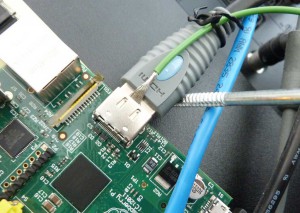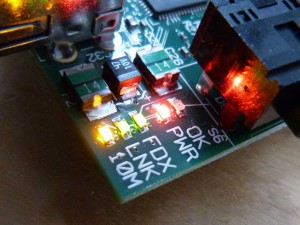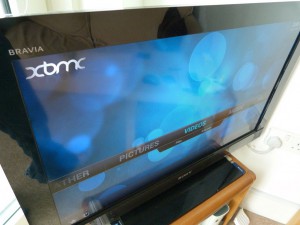With my troubleshooting exhausted, I turned to the Raspberry Pi forums in hope of some new ideas on how to fix it.
I was not disappointed. I quickly got answers pointing towards RF issues around the HDMI cable or grounding of the Pi/TV.
Ferrite clips along the HDMI and power cables failed, and initially grounding failed due to the fact I was using the whole 10 metres of cable I purchased to ground the Pi. Thinking this may be causing a lot of resistance for the low current used, I shortened it to around 50cm and…
Hooorah!

The Raspberry Pi and my internet working in close proximity and perfect harmony. The solution is to attach one end of a short wire to the HDMI port of the Pi, and the other end is attached to the ground pin of a standard socket plug.
This has been an expensive problem for me, 2 HDMI cables, a shielded RJ11 cable for the ADSL connection and a bunch of ferrite clips/rings when all I needed was a £2.39 piece of wire from Maplin. At least one benefit of this expense is the increased broadband speed, provided by the shielded RJ11 cable, taking my connection from 2.5Mbps to 3.2Mbps.
Its all working now, taking its place tucked behind the TV and providing me with a great media player solution, the abilility to control XBMC with my Bravia TV remote is an excellent feature.
My forum thread on the RPi forums can be found here.

